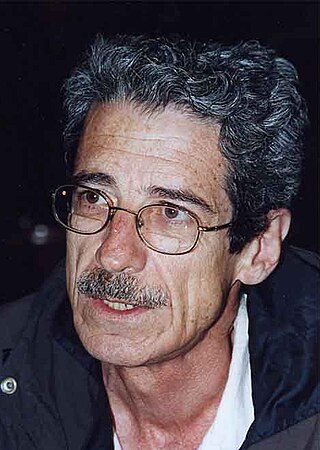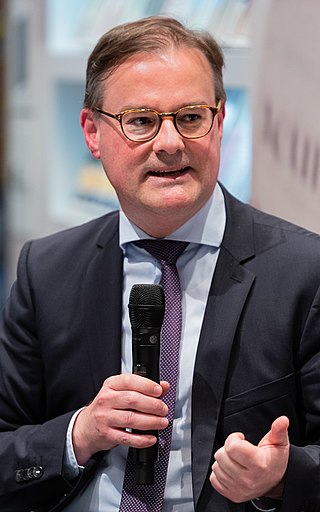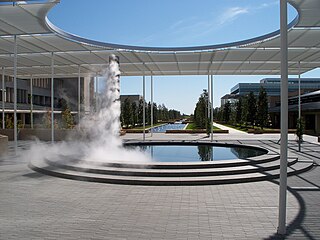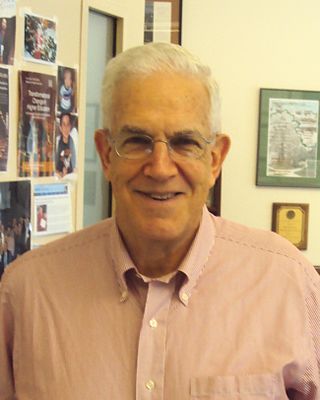Related Research Articles

The University of Bern is a public research university in the Swiss capital of Bern. It was founded in 1834. It is regulated and financed by the Canton of Bern. It is a comprehensive university offering a broad choice of courses and programs in eight faculties and some 150 institutes. With around 19,000 students, the University of Bern is the third largest university in Switzerland.

University of Erlangen–Nuremberg is a public research university in the cities of Erlangen and Nuremberg in Bavaria, Germany. The name Friedrich–Alexander comes from the university's first founder Friedrich, Margrave of Brandenburg-Bayreuth, and its benefactor Alexander, Margrave of Brandenburg-Ansbach.

Fernando Pérez Valdés is a prominent Cuban film director.
The Doctor of Liberal Studies degree, abbreviated (D.L.S.), for the Latin Doctor Liberalium Studiorum, is an advanced academic degree offered by Georgetown University, Southern Methodist University, University of Memphis and other research universities.

Peter Stamm is a Swiss writer. His prize-winning books have been translated into more than thirty languages. For his entire body of work and his accomplishments in fiction, he was short-listed for the International Booker Prize in 2013, and in 2014 he won the prestigious Friedrich Hölderlin Prize.

Nedim Gürsel is a Turkish writer. In the late 1960s, he published novellas and essays in Turkish magazines. After graduating from Galatasaray High School in 1970, he studied at the Sorbonne. In 1974, he graduated from the Sorbonne's Department of Modern French Literature. In 1979, he received his doctorate in comparative literature after completing his dissertation on Louis Aragon and Nazim Hikmet. He returned to Turkey, but the unrest there in 1980 persuaded him to go back to France.

The Swiss Graduate School of Public Administration is a Swiss graduate school of public administration. In 2014, the independent foundation was integrated into the University of Lausanne.

Jörn Leonhard is a historian and professor of Western European History at the History Department of the University of Freiburg since 2006. From 2007 to 2012, he was co-director of the School of History at the Freiburg Institute for Advanced Studies (FRIAS). His published works focus on the history of liberalism, nationalism, empires and wars. Leonhard has received several important research awards. His books “Die Büchse der Pandora” (2014) as well as “Der Überforderte Frieden” (2018) established him as an important representative in the research of global history.

The Swiss Federal Institute of Aquatic Science and Technology is a Swiss water research institute and an internationally networked institution. As part of the Swiss Federal Institutes of Technology Domain, it is an institution of the Federal Department of Home Affairs of the Swiss Confederation. The Eawag is based in Dübendorf near Zurich and Kastanienbaum near Lucerne.

The University of Texas at Dallas is a public research university in the University of Texas System. The University of Texas at Dallas main campus is located in Richardson, Texas. The University of Texas at Dallas offers over 148 academic programs across its seven schools, including 57 baccalaureate programs, 59 masters programs and 32 doctoral programs, and hosts more than 40 research centers and institutes. The school also offers over 50 undergraduate and graduate certificates.

Ronald Gordon Ehrenberg is an American economist. He has primarily worked in the field of labor economics including the economics of higher education. Currently, he is Irving M. Ives Professor of Industrial and Labor Relations and Economics at Cornell University. He is also the founder-director of the Cornell Higher Education Research Institute (CHERI).
The Cluster of Excellence "Asia and Europe in a Global Context" is a research facility funded in the framework of the German Universities Excellence Initiative of the federal state governments of Germany since October 2007. It is a trans- and interdisciplinary network of researchers affiliated with Heidelberg University. Key research areas of the Cluster are the processes of exchange between cultures of Asia and Europe, ranging from migration and trade to the formation of concepts and institutions.

Mathias Énard is a French novelist. He studied Persian and Arabic and spent long periods in the Middle East. He has lived in Barcelona for about fifteen years, interrupted in 2013 by a writing residency in Berlin. He won several awards for Zone, including the Prix du Livre Inter and the Prix Décembre, and won the Prix Goncourt/Le Choix de l’Orient, the Prix littéraire de la Porte Dorée, and the Prix du Roman-News for Rue des Voleurs. He won the 2015 Prix Goncourt for Boussole (Compass). In 2020 he was Friedrich Dürrenmatt Guest Professor for World Literature at the University of Bern.

Joanna Bator is a Polish novelist, journalist, feminist and academic. She specializes in cultural anthropology and gender studies. She is the recipient of the 2013 Nike Award, Poland's top literature prize.

The Max Weber Center for Advanced Studies is an international and interdisciplinary "high-ranking research centre which forms an avant-garde institution of the University of Erfurt," according to the European Commission's CORDIS. The Center's focal areas include "religion, science, and law as powers of interpretation and governance; interactions among cultures; social orderings and mentalities in radical change; and normative—in particular, ethical—issues."

Lizzie Doron is an Israeli author.
The Centre for Development and Environment (CDE) is an interdisciplinary research centre specializing in sustainability science and land systems at the University of Bern, Switzerland. It conducts research in many countries worldwide, with a particular focus on the Eastern Africa, Southeast Asia, South America, Europe, and Switzerland. In terms of teaching, CDE offers courses in the field of sustainable development at the bachelor’s, master’s, doctoral, and postdoctoral level.
The Hans Sigrist Prize is awarded by the Hans Sigrist Foundation, at the University of Bern in Switzerland. The Foundation's benefactor Hans Sigrist died on December 30, 1982. The Foundation was founded in 1993. The Foundation's first award was presented in 1994.
Michael Stolz is a Swiss and German medievalist and professor at the University of Bern.
Christine Mallinson is an American linguist. She is professor of language, literacy, and culture and affiliate professor of gender, women's and sexuality studies at the University of Maryland, Baltimore County. Mallinson's interdisciplinary research examines the intersections of language, culture, and education, focusing on English language variation in the United States.
References
- ↑ "Xiaolu Guo". Walter Benjamin Kolleg. 2018-01-22. Retrieved 2020-08-03.
- ↑ "Polnische Literatin bringt Berner Studenten Godzilla näher". Derbund.ch. 16 June 2014. Retrieved 13 November 2017.
- ↑ "Voodoo in Bern: Louis-Philippe Dalembert ist dritter Friedrich Dürrenmatt Gastprofessor". Myscience.ch. Retrieved 13 November 2017.
- ↑ "The torment and small gains of Burmese dissident groups". Washington Post. Retrieved 13 November 2017.
- ↑ Krebs, Geri (3 August 2016). "Pfeile abschiessen und schauen, was passiert". Derbund.ch. Retrieved 13 November 2017.
- ↑ "Wilfried N'Sondé". Walter Benjamin Kolleg. 2016-11-02. Retrieved 2020-08-03.
- ↑ "Embajada de Colombia organizó conversatorio entre el escritor colombiano Juan Gabriel Vásquez y el académico Gustavo Guerrero en la Universidad de Bern". 8 May 2017. Retrieved 15 November 2017.
- ↑ "Im Schatten der Drogenbarone: Juan Gabriel Vásquez ist siebter Friedrich Dürrenmatt Gastprofessor". www.myscience.ch. 2017-01-24. Retrieved 2017-11-15.
- ↑ "Josefine Klougart". Walter Benjamin Kolleg. 2017-06-15. Retrieved 2020-08-03.
- ↑ "Xiaolu Guo". Walter Benjamin Kolleg. 2018-01-22. Retrieved 2020-08-03.
- ↑ "Peter Stamm". Walter Benjamin Kolleg. 2018-07-11. Retrieved 2020-08-03.
- ↑ "Nedim Gürsel". Walter Benjamin Kolleg. 2019-02-12. Retrieved 2020-08-03.
- ↑ "Lizzie Doron". Walter Benjamin Kolleg. 2019-08-20. Retrieved 2020-08-03.
- ↑ "Mathias Énard". Walter Benjamin Kolleg. 2020-01-16. Retrieved 2020-08-03.